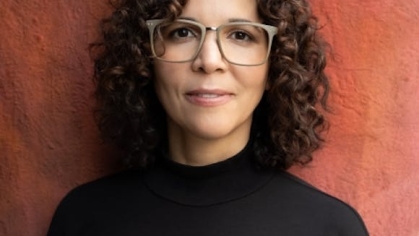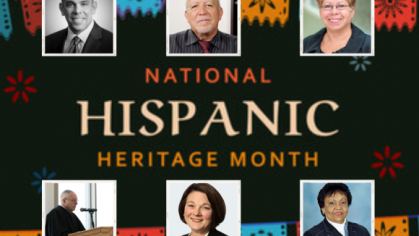Rutgers University-Newark Launches Program To Promote Excellence In Instruction, Student Success
ACUE Will Train, Credential Faculty and Graduate Students In First-Of-Its-Kind Certificate Program In Effective College Instruction
Effective college teaching is a moving target. Staying on top of your game as an instructor across generations requires constant attention to what drives student learning. But unlike K-12 education, higher education has not had in place the kind of professional development infrastructure needed to support faculty members in making evidence-based refinements to their teaching. That is why Rutgers University–Newark (RU-N) has launched a five-year partnership with the Association of College and University Educators (ACUE) to train and credential instructional faculty through ACUE’s Course in Effective Teaching Practices. Faculty are a central part of RU-N’s strategic vision and student success plans, and the program is part of a long-term partnership to significantly improve student learning outcomes through instructional excellence.
The ACUE program is a cornerstone initiative of RU-N’s new P3 Collaboratory for Pedagogy, Professional Development, and Publicly-Engaged Scholarship, a comprehensive faculty development center that supports excellence in teaching, scholarship, and leadership while maintaining a healthy work-life balance for the emerging (that is, Ph.D. students) and existing professoriate.
“Research confirms that students’ success and instructional practices are directly correlated,” notes Bonnie Veysey, professor and director of the P3 Collaboratory. “Because we believe in investing in faculty and student success, RU-N is providing the ACUE program to participants at no cost.” The university will be evaluating the impact of the program through a combination of metrics, including participant skill assessments, course taker evaluations, and measures of student learning. Veysey expects that RU-N’s already high graduation rates will rise, along with faculty and student satisfaction.
The ACUE program is endorsed by the American Council on Education (ACE), one of the nation’s most respected leaders in higher education, which has invested in a landmark collaboration with ACUE to promote effective college instruction. “ACUE’s course offers higher education institutions a comprehensive and scalable opportunity to support instructors through tools and techniques proven to help students succeed,” said Molly Corbett Broad, president of ACE. “ACE and ACUE have an important shared goal to dramatically expand the use of effective teaching practices to benefit students, faculty, and institutions.”
This semester, a total of 32 faculty and Ph.D. students are participating in the 13-week hybrid online/in-person program. The program features 25 modules designed to encourage classroom development, promote learning and higher thinking, increase participation and enthusiasm for learning material, and establish a more productive classroom environment. These modules feature more than 180 instructional videos, with interviews and classroom demonstrations of over 70 leading subject matter experts and award-winning faculty, including two of RU-N’s own – Robert Puhak, Department of Mathematics (excerpt from ACUE module, Connecting With Your Students) and Executive Vice Chancellor and Provost Jerome Williams, Rutgers Business School (excerpt from interview for module, Embracing Diversity in Your Classrooms.). Participants view the modules, try out new learning techniques each week, then discuss the modules, refining their skills and teaching styles. At the end of this process, each participant will receive the ACE-recognized teaching certificate.
“Comprehensive support and training for instructional faculty are necessary for ensuring that all students benefit from effective instruction,” said Penny MacCormack, ACUE’s chief academic officer. “Rutgers-Newark has made great teaching central to its student success strategies and ACUE is proud to support faculty in this important initiative.”
Although the program has only been in place a couple of months, it’s already making an impact. “I feel like my job in the classroom changed from lecturer to facilitator of student learning,” explains Christina M. Zambrano-Varghese, who teaches psychology. “In the beginning, I was just testing out new techniques each week, but now that I am putting all of the strategies together, I envision my time with my students differently and set better goals to make sure they are really learning the information, not just hearing me talk about it. I see how much the students are enjoying and learning, and I think my passion for the course material and helping my students learn has really had a chance to shine.”
Zambrano-Varghese adds, “I am most excited for teaching next semester, when I can plan out my whole course structure and syllabus based upon these new principles I have learned and implement them throughout the entire semester. I am also looking forward to assessing whether students are performing better during the class because it seems like they are truly comprehending the material on a deeper level.”
About Rutgers University-Newark
Rutgers University - Newark is a diverse, urban, public research university that is an anchor institution in New Jersey’s cultural capital. Approximately 12,000 students are currently enrolled at its 38-acre campus in a wide range of undergraduate and graduate degree programs offered through the Newark College of Arts and Sciences, University College, the Graduate School-Newark, Rutgers Business School-Newark and New Brunswick, the Rutgers Law School, the School of Criminal Justice, and the School of Public Affairs and Administration.
At a historical moment when our cities, our state, our nation, and our world desperately need higher education to fulfill its promise as an engine of discovery, innovation, and social mobility. Rutgers University – Newark is exceptionally well positioned to fulfill that promise. It has a remarkable legacy of producing high-impact scholarship that is connected to the great questions and challenges of the world. It has the right mix of disciplines and first-rate interdisciplinary centers and institutes to take on those questions and challenges. It is in and of a city and region where its work on local challenges undertaken with partners from many sectors resonates powerfully throughout our urbanizing world. Most importantly, Rutgers University – Newark brings an incredible diversity of people to this work—students, faculty, staff, and community partners—making it more innovative, more creative, more engaging, and more relevant for our time and the times ahead. For more information please visit www.newark.rutgers.edu.
About ACUE
ACUE was founded by leaders in higher education to ensure that all college students receive great instruction. Through a landmark collaboration with the American Council on Education, ACUE provides the only comprehensive, scalable, affordable, and effective program to credential faculty in the evidence-based teaching practices necessary for student success. For more information, go to acue.org/


